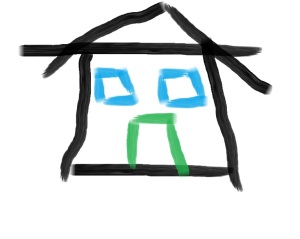The future of “the home” is a fascinating subject to consider.
Homes are the centre of most of our universes; places where families come together, where interior design dreams are realised and memories are created.
However, the whole idea of what a home is could now be on the move.
This is partially in line with our day-to-day lives becoming more connected through technologies and the internet.
Homes are likely to become much more than just somewhere we live. With more people working from home and with increasing desires for comfort and entertainment, homes of the future may need to do and be a lot more.
With this, the concept of ‘Digitally Enabled Homes’ or ‘SMART Homes’ is becoming well known in the domestic built environment sector.
This comes from the idea that everything within the home will be progressively more ‘intelligent’ and connected. The potential for this is immense. As of yet, there is no set definition of a SMART Home, which can result in confusion within the market.
However, as SMART technologies range from very simple single operating systems to whole house systems; it is inevitable that homes of the future will incorporate “intelligent” technologies on some level.
Indeed, the role out of SMART meters into the domestic environment is almost certainly a preliminary step in this transition to intelligent living. It is therefore essential that every one of us, as home owners and residents, is aware of the opportunities in this area, or risk being left behind.
How do we know that this is likely for the future?
Initially, in the industry it can be noted that the number of academic research papers and SMART Home publications is growing at an almost exponential rate.
In economic terms, predicted global market value estimates of smart homes vary widely from $26bn , to higher estimates of over $51bn by the end of the decade, which is a considerable increase from present day . In these scenarios, the core market drivers are understood to be energy and cost savings, reduced carbon emissions, assisted living for the ageing population and security .
Additionally, SMART Home technologies are becoming increasingly important in enabling Government carbon reduction and housing targets for microgeneration and fuel poverty.
There is recognition of the need to identify and work to the diverse needs of users, all of which can be covered by SMART Home technologies; these span from entertainment desires to a niche industry of assisted living and health care provision within the home .
Each use of SMART technology comes with its pros and cons but there is one constant; with so many options, all including technologies generating vast amounts of data the concept of “digital clutter” is one that must be considered.
Regarding SMART and connected homes, the market is already large and expanding to include increasing numbers of manufacturers, big data handlers and developers; and this is incredibly exciting for the new “golden age” of construction.
With the potential of millions of households generating hundreds of data inputs every day, there is a clear opportunity to use this real-time data to continually improve the domestic environment. However, with the home as such a personal space are the security concerns that so often accompany data in this day and age going to be a hurdle that households will simply not let us conquer?
There is no doubt that this data could be incredibly useful to the construction industry, and therefore incredibly useful to any one of us looking to buy a new home but we need to consider whether it is feasible and is it desirable?
Interestingly, BRE (Building Research Establishment) along with G4C Constructing Excellence are broaching this question right now through a pioneering research project on the use of Big Data within the construction industry. T
he first of a series of debates is already live on YouTube and well worth a watch and we are preparing for an equally engaging upcoming debate titled “How can a digital culture help the housing industry?”.
With the wealth of information and opinions on SMART homes increasing daily, I certainly recommend taking a look at SMART technologies, Big Data and the future of the home. Please get involved and share your views with me.